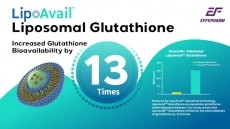Black tea polyphenols may reduce cancer risk
The study, published in Food and Chemical Toxicology, suggests the polyphenols in black tea influences several cancer controlling proteins, and may block a crucial signaling pathway in cancer formation.
“The results of the present study demonstrate that Polyphenon-B inhibits tumour cell growth both in vitro and in vivo,” wrote the researchers, led by Dr. S. Nagini, at Annamalai University in India.
Tea polyphenols
Uncontrolled cell growth and survival play a “critical role” in the development of cancers, stated the authors.
Hepatocellular carcinoma (HCC) is the fifth most common cancer worldwide, accounting for 662,000 deaths per year, according to the World Health Organization (WHO).
The activation of the nuclear factor kappa B (NF-kB) signaling pathway in cancer cells is known to aid cell survival by blocking natural cell death mechanisms. Inhibiting the activation of NF-kB is considered to a strong potential target for cancer reduction.
Since several studies have suggested evidence for the protective effect of tea polyphenols on cancer risk, the Indian researchers sought to test the potential anti-cancer activity of compounds from black tea – polyphenol-B – in HCC cancer cells and in rats with HCC cells
Previous studies have report the potential anti-cancer effects of tea are linked to the polyphenol content of the tea. Green tea contains between 30 and 40 percent of polyphenols, while black tea contains between 3 and 10 percent.
A study last year linked green tea to a 22 percent reduction in the risk of breast cancer, however the same study found no such protective for black tea.
Cancer inhibition
The researchers found a dose-dependent relationship between polyphenon-B and cancer development in cancer induced cells, and also witnessed reduced tumor incidence in rats.
Polyphenon-B was observed to up-regulate the expression of cell death inducing proteins and down regulate expression of the anti cell death proteins.
The black tea polyphenol also stopped certain cellular processes associated with cancer, noted the researchers.
The authors stated their results provide evidence that polyphenon-B effectively inhibits uncontrolled cell growth associated with cancer, and induces cell death mechanisms by inhibiting NF-kB signaling.
They added that by influencing the expression of a network of molecules that control cell death mechanisms, the effects of polyphenon-B can eventually result in cancer reduction.
“These studies underscore the potential anti-cancer properties of black tea polyphenols,” wrote the researchers.
Source: Food and Chemical Toxicology
Published online ahead of print, doi: 10.1016/j.fct.2010.09.002
“Intrinsic apoptosis and NF-kB signaling are potential molecular targets for chemoprevention by black tea polyphenols in HepG2 cells in vitro and in a rat hepatocarcinogenesis model in vivo”
Authors: R. Senthil Murugan, R. Vidya Priyadarsini, K. Ramalingam, Y. Hara, D. Karunagaran, S. Nagini









